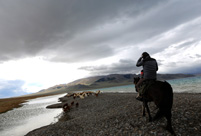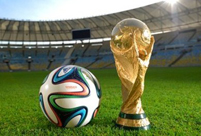 Not afraid of death
Not afraid of death
 Chen Guangbiao ads on A15 of NYT to host charity luncheon for 1,000 poor and destitute Americans
Chen Guangbiao ads on A15 of NYT to host charity luncheon for 1,000 poor and destitute Americans
 Passionate bar babies and fans feel the charm of World Cup 2014
Passionate bar babies and fans feel the charm of World Cup 2014
 US aircraft carrier docks in HK, welcomes PLA aboard
US aircraft carrier docks in HK, welcomes PLA aboard
 Graduation season: 'Take graduation photos to mark our love'
Graduation season: 'Take graduation photos to mark our love'
 College-student-turned nun becomes famous on Internet
College-student-turned nun becomes famous on Internet
 Japanese airplanes tail Chinese warplane in China's ADIZ
Japanese airplanes tail Chinese warplane in China's ADIZ
 China applies for UNESCO listing of Nanjing documents
China applies for UNESCO listing of Nanjing documents
 Picturesque scenery in Hongcun Village
Picturesque scenery in Hongcun Village
 Japan's PM vows to resume commercial whale hunt
Japan's PM vows to resume commercial whale hunt
Japan's latest historical revisionist move is fueling the tension above the East China Sea, making a political settlement more unlikely, senior officials and experts warned on Sunday.
Policy insiders from several nations said "a deeper problem" behind the historical and maritime feuds is that an effective regional security consulting mechanism is "yet to be established" to secure the sea.
"The right-wing Japanese leader has not shown the slightest remorse about his country's past atrocities", and "he is even investigating and questioning the Kono Statement, whose contents are beyond doubt and confirmed true," Sun Jianguo, deputy chief of general staff of the People's Liberation Army, said at the third World Peace Forum on Sunday.
The 1993 statement made by Japanese then-chief cabinet secretary Yohei Kono apologized for Japan's wartime atrocity of forcing Asian women into sexual slavery and calling them "comfort women".
A panel report made by Japanese government-chosen experts angered Seoul and Beijing on Friday by saying that Japan "worked closely with South Korea" behind the scenes on the wording of the statement, indicating that the statement is an outcome of political bargaining or concession.
Sun called on the world to "remain alert against the plan of Japanese right-wing forces to challenge postwar order and revive militarism".
Yu Myung-hwan, former South Korean minister of foreign affairs and trade, said, "The Abe administration is trying to either reverse or modify the government's past positions regarding their understanding of the history."
Abe and his Cabinet have visited the Yasukuni shrine, where Class-A war criminals are honored, and Yu said that act "may be understood as denying the verdict of international military tribunal".
Sun's speech directly called on the Japanese Cabinet to "stop hurting the feelings of the victimized Asian neighbors", said Liu Jiangyong, a Japanese studies expert at Tsinghua University.
Takashi Inoguchi, president of the University of Niigata Prefecture and a China affairs expert, said Abe toned down his historical revisionism when addressing the Shangri-La Dialogue in Singapore recently, due to pressure from Washington, but the moderate tone does not mean he has altered his principles.
Meanwhile, policy insiders warned that the security environment in East Asia is deteriorating, in part because of Japan.
Speaking of the flaring dispute over the Diaoyu Islands, He Yafei, vice-minister of the Overseas Chinese Affairs Office of the State Council, said, "We clearly see signs of Japan trying to change the status quo and established post-World-War-II order."
Yang Bojiang, an expert on Japan studies at Chinese Academy of Social Sciences, said historical and territorial issues are unlikely to be resolved, and the only feasible path is to rein in the problems rather than to flare them.
 Stewardesses in Brazilian soccer jerseys
Stewardesses in Brazilian soccer jerseys Puzhehei: land of idyllic beauty
Puzhehei: land of idyllic beauty Chinese navy fleet visits Cape Town, South Africa
Chinese navy fleet visits Cape Town, South Africa PLA naval cadets toss their hats at graduation ceremony
PLA naval cadets toss their hats at graduation ceremony Graduation photo ideas: reliable alumnus and happy alumna
Graduation photo ideas: reliable alumnus and happy alumna Super daddies in 2014 World Cup
Super daddies in 2014 World Cup College girls take stylish photos to help enrollment
College girls take stylish photos to help enrollment Rebuilding the silk road
Rebuilding the silk road Top 10 Chinese products scoring World Cup goal
Top 10 Chinese products scoring World Cup goal In Pictures: Female fans of World Cup
In Pictures: Female fans of World Cup China's top 10 representative architectures
China's top 10 representative architectures Photo story: A day of 'mini girl'
Photo story: A day of 'mini girl' Top 20 hottest women in the world in 2014
Top 20 hottest women in the world in 2014  Cute animals' leisure summer in zoo
Cute animals' leisure summer in zoo Exhibition of the Buddha held in Tibet
Exhibition of the Buddha held in TibetDay|Week|Month